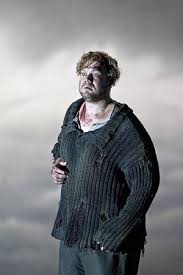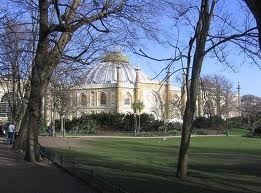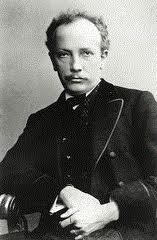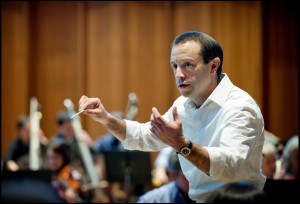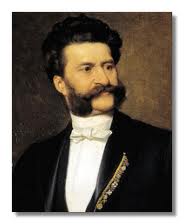Building on ENO’s reputation as the undisputed ‘House of Handel’, Richard Jones directs a new production of Rodelinda, featuring a stellar British cast conducted by baroque specialist Christian Curnyn.
ENO’s inaugural production of Rodelinda follows on from previous successful productions of Handel operas including Ariodante (1993),Alcina (1999),Semele (1999), Jeptha (2005), Agrippina (2007), Messiah (2009), Partenope (2009), Radmisto (2010) Julius Caesar (2012)and of course, Nicholas Hytner’s seminal production of Xerxes (1985).
Widely considered to be one of Handel’s operatic masterpieces, Rodelinda is infused with compelling characters and ravishing music. It is an epic story of love, power and mistaken identity. Bertarido has been driven from his kingdom by Grimoaldo and is presumed dead, leaving behind his grieving wife, Rodelinda. Grimoaldo will imprison Rodelinda unless she agrees to marry him, but then the exiled king returns in disguise.
Richard Jones’s Rodelinda transports the action from the dark ages to 1950s Italy, presenting the conflict between political manoeuvring and emotional relationships in an intense, direct way reminiscent of a contemporary, dark political thriller.
Rodelinda is the third of five new productions Richard will direct for ENO before 2016, continuing his close relationship with the Company. In 2012, his The Tales of Hoffman, was described as “inspired” by Evening Standard and Martin?’s Julietta, of which the Financial Times said, “you couldn’t want a more intelligent or entertaining production”.
Conducting Rodelinda is baroque specialist Christian Curnyn. Christian debuted at ENO in 2008 conducting the Olivier Award-winning production of Partenope. Since then he has conducted a number of baroque operas for the company including After Dido, Castor and Pollux (2012 Olivier Award for Best Opera Production), Julius Caesar and most recently, Medea, described by The Independent as “the most brilliant show to have graced the Coliseum in years”. Following Rodelinda, Christian goes on to conduct L’Ormindo for The Royal Opera at the new Sam Wanamaker Theatre at the Globe.
Leading an exceptional British cast in the title role of Rodelinda is Rebecca Evans. Rebecca has previously performed at ENO as Romilda in Xerxes and most recently as the Governess in David McVicar’s production of The Turn of the Screw, in a performance described by The Guardian as “superbly judged, utterly humane”.
Countertenor Iestyn Davies plays the usurped Bertarido. Iestyn most recently played Oberon in Christopher Alden’s striking production of A Midsummer Night’s Dream, described by New York Times as “brilliant”.
Internationally renowned tenor John Mark Ainsley plays Grimoaldo. John last performed at ENO as Emilio in Partenope. Susan Bickley plays Eduige. Susan last sang at ENO in Richard Jones’ production of Julietta.
Christopher Ainslie, who made his ENO debut in 2012 in the role of Helicon in the UK premiere of Detlev Glanert’s Caligula, plays the part of Unulfo.
Completing the cast is Richard Burkhard, playing Garibaldo and Matt Casey, playing Flavio.
Rodelinda opens at the London Coliseum on 28 February 2014 for 8 performances – 28 February & March 4, 6, 11, 13 at 7pm, March 2 at 3pm and March 8, 15 at 6pm.
Pre-performance talk: Tuesday 4 March, 5.00pm-5.45pm, £5/£2.50 concessions
A co-production with the Bolshoi Theatre of Russia
New production supported by Dunard Fund, Colwinston Charitable Trust, Friends of ENO and a syndicate of individual donors

